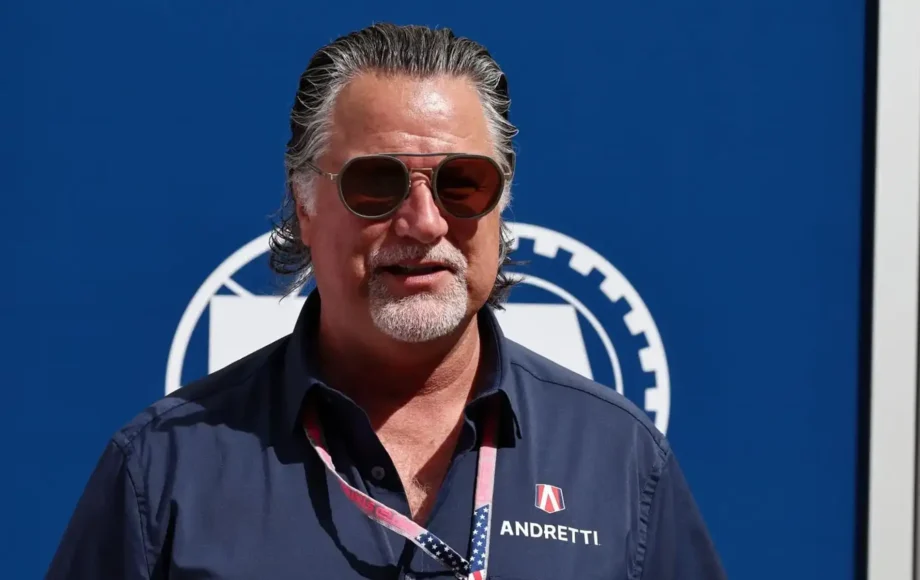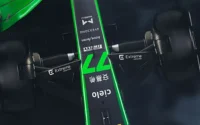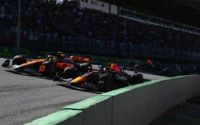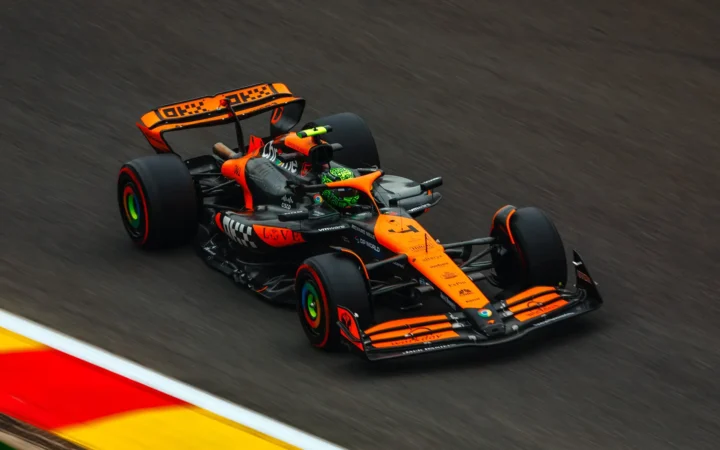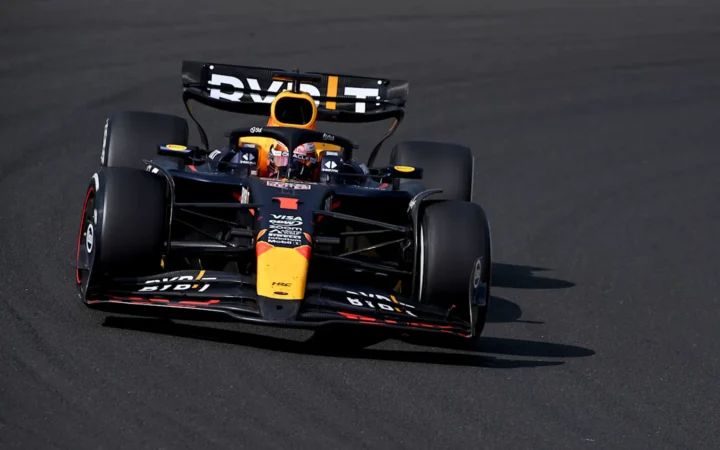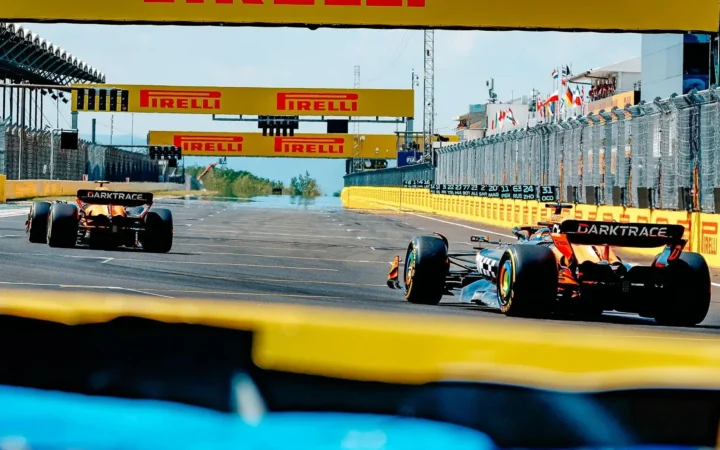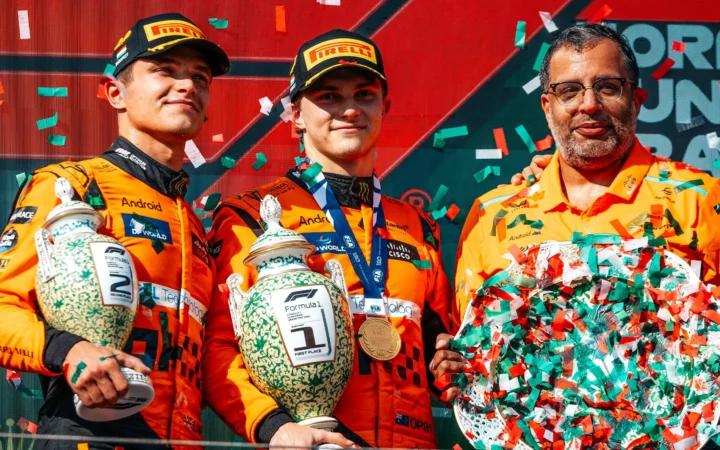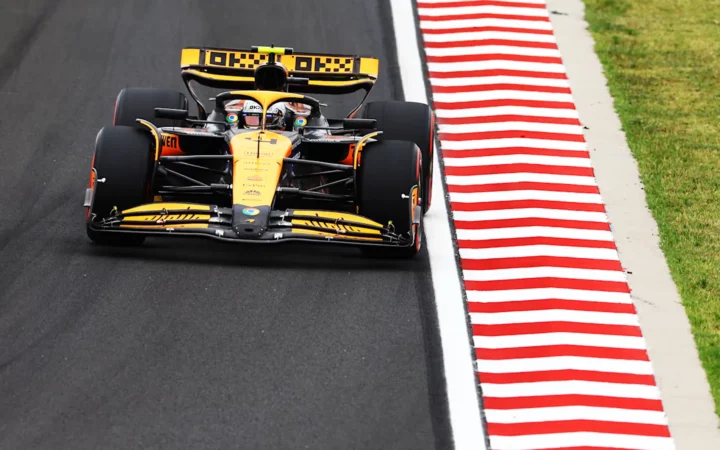In a recent statement, Formula 1 has officially rejected Andretti Global’s application to participate in F1 for the upcoming seasons.
Andretti’s bid to join Formula 1 in the near future has been decisively turned down by the sport’s governing body, which has provided a thorough assessment explaining the grounds for this decision.
READ MORE: F1 Track Poised for Remarkable Comeback in 2026
Last year, the FIA had opened the opportunity for new entries into the championship, with Andretti Global’s bid, led by ex-F1 driver Michael Andretti, son of 1978 World Champion Mario Andretti, emerging as a prominent contender. Despite clearing the initial FIA criteria, the application has now been dismissed.
Andretti’s entry application denied by Formula 1
Following confirmation from the FIA in October 2023 that Andretti’s application met the initial selection criteria, the next step involved an evaluation by Formula 1, acting as the commercial rights holder (Liberty Media – CRH), to assess whether Andretti’s participation would enhance the value of the championship. Both the FIA and Formula 1 must agree for a new team to join the grid.
A key point noted by Formula 1 was the absence of a response from Andretti to an invitation for an in-person meeting to discuss their application. Formula 1 has now stated that Andretti’s team should not be considered for entry in either the 2025 or 2026 seasons.
What were the reasons for Formula 1’s rejection of Andretti?
Formula 1, in its communication to the press, emphasised wethat simply adding an 11th team does not automatically contribute value to the championship.
The rationale behind this is that a new 11th team must demonstrate substantial benefits to the championship or to the commercial rights holder for their participation to be considered valuable.
“The most significant way in which a new entrant would bring value is by being competitive, in particular by competing for podiums and race wins,” said the statement.
“This would materially increase fan engagement and would also increase the value of the Championship in the eyes of key stakeholders and sources of revenue such as broadcasters and race promoters.”
Despite Andretti’s significant partnership with Cadillac and General Motors, their collaboration didn’t significantly influence Formula 1’s decision.
Although General Motors was set to collaborate with Andretti, they wouldn’t serve as a power unit supplier initially, but rather as a ‘silent partner’ during the initial years. Formula 1 commented that having GM supply the power unit from the start would have bolstered the entry’s credibility. However, they also noted the substantial challenge a new team and a new power unit supplier would face.
Furthermore, with the chassis and power unit regulations undergoing significant changes between 2025 and 2026, necessitating entirely different designs, Formula 1 was skeptical about Andretti’s ability to design and build a car for the last year under the current regulations and then swiftly transition to designing and building another car compliant with the new regulations.
The absence of an immediate GM power unit also meant that existing power unit manufacturers, as per the sporting regulations, would be obligated to supply an engine to Andretti, which Formula 1 implied could be problematic: “inevitably be reticent to extend its collaboration with [Andretti] beyond the minimum required while [Andretti] pursues its ambition of collaborating with GM as a PU supplier in the longer term, which the compulsory PU supplier would see as a risk to its intellectual property and know-how.”
Consequently, Formula 1 stated that there is no justification for admitting a new team in 2025. They also raised concerns about Andretti’s approach to the regulations, remarking: “The fact that [Andretti] proposes to do so gives us reason to question their understanding of the scope of the challenge involved.”
Despite Andretti’s success in other motorsport categories, F1 also said that the sport ” represents a unique technical challenge to constructors of a nature that [Andretti] has not faced in any other formula or discipline in which it has previously competed, and it proposes to do so with a dependency on a compulsory PU supply in the initial years of its participation.
“On this basis, we do not believe that [Andretti] would be a competitive participant.”
Furthermore, Formula 1 elaborated that the difficulties a new power unit manufacturer would face should not be taken lightly, pointing out how “major automotive manufacturers have struggled in the past”, F1 conceded that GM has the resources and credibility to do so but that “success is not assured”.
Formula 1, after a thorough commercial evaluation of Andretti’s application, acknowledged that the team could add value to the championship if they prove competitive. Nevertheless, F1 straightforwardly expressed doubts about Andretti’s competitive potential, stating, “We do not believe that [Andretti] would be a competitive participant.”
Regarding the power unit supply, while there is a regulatory provision to compel existing manufacturers to supply engines to teams without a partner, Formula 1 has refrained from enforcing this. They believe such a move could harm the sport’s prestige and reputation.
In a direct critique of Andretti, Formula 1’s statement also indicated that the Andretti brand, while having some recognition among F1 fans, would gain more from being associated with Formula 1 than contributing to it. The statement asserted, “Our research indicates that F1 would bring value to the Andretti brand rather than the other way around.”
Formula 1 also expressed concerns about the potential negative impacts on financial outcomes for the Commercial Rights Holder (CRH) and additional operational challenges for race promoters. Additionally, the entry of Andretti could lead to decreased technical, operational, and commercial opportunities for the existing 10 teams.
In a real poke in the eye for Andretti, the statement also said “While the Andretti name carries some recognition for F1 fans, our research indicates that F1 would bring value to the Andretti brand rather than the other way around.”
F1 also said they could not forecast any material positive effects on financial results for the CRH, while also placing additional operational burdens on race promoters alongside a reduction in technical, operational, and commercial opportunities for the other 10 teams.
“We do not believe that the Applicant has shown that it would add value to the Championship,” concluded the statement.
“We conclude that the Applicant’s application to participate in the Championship should not be successful.”
Despite the current setback, Andretti might still have a chance for Formula 1 entry. Recently, they announced their ongoing efforts to prepare for a potential entry into F1 within the next year or two.
Formula 1 acknowledged the possibility of considering Andretti’s entry for the 2028 season, especially with the backing of General Motors, either as a factory team or a customer team. This scenario could be more favorable, particularly regarding the introduction of a new Original Equipment Manufacturer (OEM) to the sport.
Lastly, while many existing F1 teams have openly shown little enthusiasm for an Andretti entry, Formula 1 clarified that their evaluation of Andretti’s application was conducted independently, without consulting the current F1 teams.
“However, in considering the best interests of the Championship we took account of the impact of the entry of an 11th team on all commercial stakeholders in the Championship.”
Source: PlanetF1.com
Seen in:

